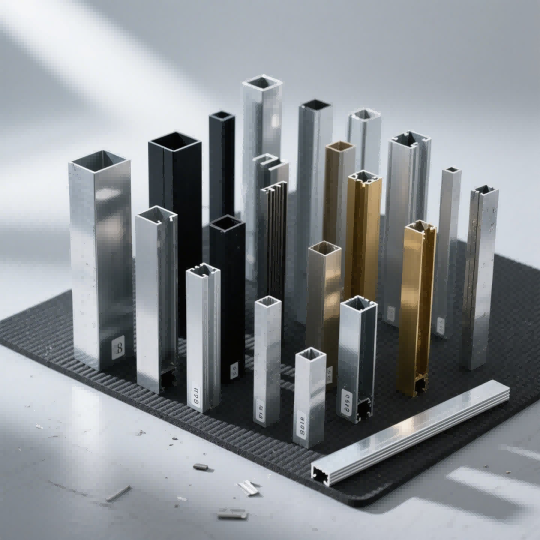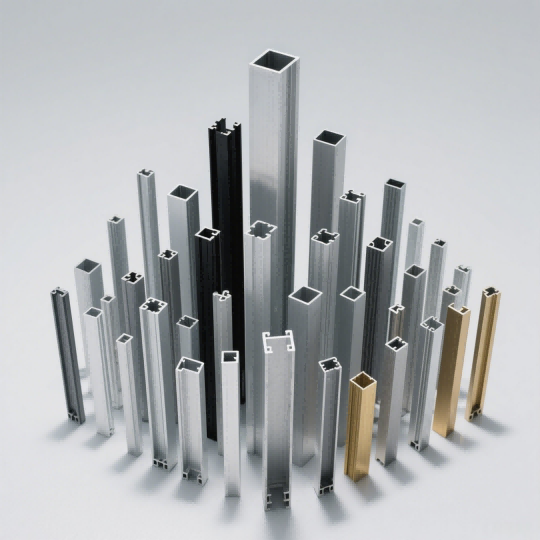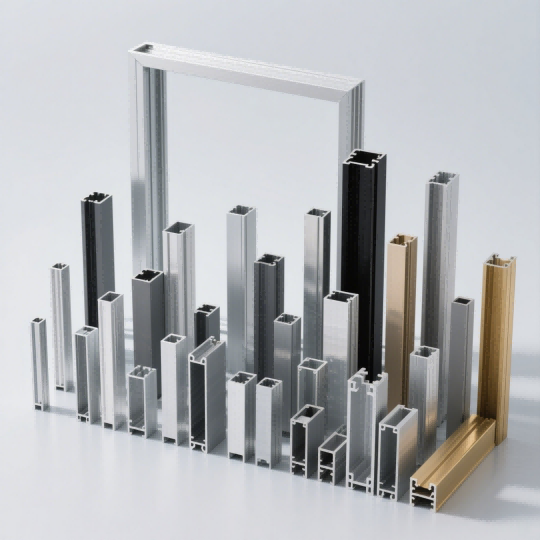
The Ultimate Buyer's Guide to Aluminum Patio Covers: Styles, Costs, and Installation Tips Discover the Advantages of Aluminum Patio Covers for Modern Outdoor Living Imagine stepping outside to a comfortable, shaded retreat—rain or shine, your backyard is always ready for relaxation or entertaining guests. That’s the experience more homeowners are seeking with aluminum patio covers. As outdoor living spaces become an extension of the home, these covers are quickly gaining popularity for their blend of style, strength, and practicality. But what makes them stand out from other options? Why Are Aluminum Patio Covers So Popular? When you think about upgrading your patio or backyard, you want something that lasts, looks great, and doesn’t require constant upkeep. Here’s where outdoor aluminum patio covers shine: Durability: Unlike wood, aluminum resists warping, rotting, and decay—even after years of exposure to sun, rain, or snow. Powder-coated finishes prevent rust and corrosion, so your cover stays strong and attractive with minimal effort. Low Maintenance: Forget about frequent painting or staining. Most aluminum covers only need a quick rinse with soap and water to keep them looking fresh. Modern Aesthetics: With clean lines, customizable colors, and a range of design options—from sleek flat panels to airy lattice styles—aluminum patio covers enhance the look of any home. They can be tailored to match both contemporary and traditional exteriors. All-Weather Protection: These covers create a reliable barrier against harsh sun, rain, and even hail, allowing you to enjoy your outdoor space year-round and protect your furniture from damage. Added Home Value: A well-designed patio cover extends your living space and can boost curb appeal, making your property more attractive to potential buyers. What to Expect from This Guide Choosing the right aluminum patio cover isn’t just about picking a style you like. You’ll want to consider your climate, home design, budget, and how you plan to use your outdoor area. This guide will walk you through: The unique benefits of aluminum compared to other materials Popular styles and customization options Cost factors and budgeting tips Installation advice for both DIYers and those seeking professional help How to source high-quality covers that fit your needs By the end, you’ll have the knowledge and confidence to select, plan, and source the perfect aluminum patio cover for your home—transforming your backyard into a functional, beautiful, and low-maintenance oasis. Why Aluminum Patio Covers Outshine Wood and Vinyl Alternatives When you’re deciding on the best material for your patio cover, it’s easy to get overwhelmed by the options. Should you go with the classic appeal of wood, the modern simplicity of vinyl, or the long-lasting practicality of aluminum? Let’s break down the benefits of aluminum patio covers so you can make a confident, informed choice for your outdoor space. Aluminum vs. Wood Patio Covers: A Pr...
Read More
The Essential Guide to Aluminum in Deodorant: Risks vs. Reality Introduction to Aluminum in Deodorant Have you ever paused in the personal care aisle, deodorant in hand, and wondered: “Is aluminum in deodorant bad for you?” If so, you’re not alone. The presence of aluminum in deodorant and antiperspirant products has sparked a heated debate, leading to a mix of concern, confusion, and conflicting information among consumers. With so many opinions swirling—some warning of potential health risks and others assuring safety—it’s easy to feel overwhelmed or unsure about what’s best for your body. Let’s break it down: Why is aluminum in deodorant even a topic of controversy? Aluminum-based compounds are widely used in antiperspirants, but not in deodorants. This distinction is crucial, yet often misunderstood. While deodorants target odor by controlling bacteria, antiperspirants use aluminum salts to block sweat—two very different functions. Still, both products often get lumped together, muddying the conversation about their safety and effectiveness. What’s fueling the concern? Over the years, questions have surfaced about whether aluminum in antiperspirants could be linked to serious health issues, such as breast cancer or Alzheimer’s disease. Some studies have suggested possible associations, while others—and many health experts—have found little or no evidence to support these fears. The result? Ongoing debate and a growing market for aluminum-free alternatives. In this guide, we’ll tackle the core questions you may be asking: What does aluminum actually do in antiperspirant products? What is the real difference between deodorants and antiperspirants? What does the current scientific evidence say about health risks like cancer and Alzheimer’s? Our goal is simple: to provide an evidence-based, balanced overview that empowers you to make informed decisions about your daily routine. Whether you’re looking to understand the science, weigh risks, or just want peace of mind, you’ll find answers here—without the hype or confusion. Ready to get clarity on aluminum in deodorant? Let’s dive in. What Aluminum Actually Does in Your Antiperspirant Ever wondered how antiperspirants keep you dry, even on a sweltering day or before a big meeting? The secret lies in the chemistry of aluminum-based compounds. But how does aluminum in antiperspirant work, and what exactly happens when you swipe it on your skin? The Science Behind Sweat Blocking When you apply an antiperspirant, you’re not just masking odor—you’re actively reducing sweat. Here’s how it works: Dissolving in Sweat: Aluminum salts, the active ingredients in most antiperspirants, dissolve in the moisture on your skin. Forming a Gel Plug: Once dissolved, these compounds interact with proteins and electrolytes in your sweat to form a gel-like substance. Blocking the Sweat Duct: This gel creates a temporary plug just inside the sweat duct, physically blocking sweat from reaching the skin’s surface. Gradual R...
Read More
The Ultimate Aluminum Luggage Buyer's Guide: Everything You Need to Know Before You Invest Introduction to Aluminum Luggage Imagine gliding through a bustling airport, your suitcase catching the light with every step. That unmistakable metallic sheen isn’t just about looks—it’s a statement. Aluminum luggage, once reserved for luxury travelers and celebrities, has quickly become the go-to choice for those who value both form and function on their journeys. But what’s behind the surge in popularity, and why are so many travelers making the shift? Let’s break it down. For years, the travel world was dominated by flashy logos and bright prints, but today, the appeal of understated, “quiet luxury” is on the rise. Aluminum suitcases, with their sleek grooves, sturdy locks, and minimalist design, perfectly embody this trend. They’re not just eye-catching; they’re built to handle the realities of modern travel. As one travel writer put it, these cases are praised for their ability to "withstand the roughest of handlings at the airport," making them a favorite among frequent flyers and style-conscious globetrotters alike. But durability and style are only part of the story. Aluminum luggage has evolved far beyond its origins as a niche, high-end product. Decades ago, brands like Rimowa introduced the first all-metal suitcases, drawing inspiration from aircraft engineering for a blend of strength and lightness (Forbes). Today, more brands and travelers are embracing aluminum, making it a mainstream choice for those who want their suitcase to last for years—and look good doing it. This comprehensive aluminum luggage guide will walk you through everything you need to know before you invest: the core benefits of aluminum construction, how it stacks up against other materials, what to look for in different sizes and styles, top brands on the market, and the must-have accessories that complete the package. Whether you’re a seasoned jet-setter or just planning your next big adventure, this resource is designed to help you make an informed, confident choice for your travel gear. Why Savvy Travelers Choose Aluminum Luggage Ever wondered why so many seasoned travelers are making the switch to aluminum luggage? If you’ve ever watched your suitcase tumble down a baggage carousel or worried about a broken zipper before a big meeting, you’ll understand the appeal. Let’s break down the benefits of aluminum luggage—and why it’s become the smart, stylish choice for those who want more from their travel gear. The Core Benefits of Aluminum Luggage Unmatched Durability Aluminum luggage is engineered from solid sheets of metal or high-strength alloys, making it incredibly tough and impact-resistant. Unlike plastic or fabric suitcases, it’s built to withstand the roughest handling by baggage crews, conveyor belts, and even the occasional drop. While it may pick up a dent or scratch over time, these marks don’t compromise its structure—in fact, many travelers wear them as badge...
Read More
Stay Fresh: Your Guide to the Best Aluminum Free Antiperspirant What Is Aluminum Free Antiperspirant and Why Are People Switching? Ever wondered why more people are reaching for aluminum free antiperspirant and aluminum-free deodorant on store shelves these days? Imagine this: you’re standing in the personal care aisle, scanning labels with words like “natural,” “gentle,” and “aluminum-free.” Sounds complex? Let’s break it down and make sense of the shift. Understanding the Aluminum-Free Trend At its core, an aluminum free antiperspirant is a product designed to help you stay fresh—without relying on aluminum-based compounds. Traditional antiperspirants use aluminum salts (like aluminum chlorohydrate) to block sweat glands and reduce perspiration. In contrast, aluminum-free formulas skip these compounds entirely, focusing instead on neutralizing odor and absorbing moisture, not blocking sweat itself. Why the Shift? So, what’s fueling this movement? Here are some of the main motivations: Interest in Natural Ingredients: Many consumers are prioritizing products with plant-based, recognizable ingredients. The appeal? Fewer synthetic chemicals and a more transparent ingredient list. Concerns About Aluminum Compounds: While major health organizations like the American Cancer Society have found no strong evidence linking aluminum antiperspirant use to breast cancer, some people prefer to err on the side of caution and minimize exposure to aluminum salts (UpCircle Beauty). Skin Sensitivity: Aluminum-based compounds can irritate sensitive skin, causing redness or discomfort. Aluminum-free options are often gentler, making them attractive to those with delicate underarm skin. Eco-Conscious Choices: Aluminum-free deodorants are frequently made by brands with a focus on sustainability, using recyclable packaging and ethical sourcing. What’s the Difference Between Deodorant and Antiperspirant? This is where things get a bit technical. Deodorants are always aluminum-free—they target odor by neutralizing the bacteria that cause it. Antiperspirants, on the other hand, are formulated to block sweat and typically contain aluminum compounds. When you see “aluminum free antiperspirant,” it usually refers to products that function as deodorants but may also contain natural moisture-absorbing ingredients like cornstarch or zinc oxide to help you feel drier. Setting the Stage for Your Switch Choosing an aluminum-free option is about more than just one product—it’s a lifestyle decision rooted in wellness, ingredient transparency, and mindful self-care. In this guide, you’ll discover how to pick the best formulas, what to expect when making the switch, and how to tailor your routine for lasting freshness. Ready to learn more? Let’s dive into what makes these products work and why they might be the right choice for you. Understanding the Shift to Aluminum-Free Formulas Ever paused to consider why aluminum-free antiperspirant for women and aluminum-free antiperspirant for...
Read More
Aluminum Foil in Air Fryer: Safety, Benefits, and Best Practices for Home Cooks Introduction to Aluminum Foil in Air Fryer When you think about making quick, crispy meals at home, what appliance comes to mind? For many, the answer is the air fryer. Over the past few years, air fryers have transformed kitchens everywhere, offering a healthier and more convenient way to enjoy everything from golden fries to roasted vegetables. Their popularity keeps rising, thanks to their ability to cook food quickly, use less oil, and deliver that irresistible crunch we all love (market.us). But as you experiment with new recipes, you might pause and wonder: Can I put aluminum foil in air fryer baskets or trays? It’s a common question—and for good reason. The idea of using foil promises effortless cleanup and could make certain dishes easier to prepare, but there’s often confusion about whether it’s truly safe or effective. You’ve probably seen mixed advice online or even conflicting recommendations in appliance manuals. Imagine you’re preparing saucy chicken wings or delicate fish. Wouldn’t it be great to use foil to keep things tidy and prevent sticking? Or maybe you’re just looking to save time on washing up. Understanding when and how to use aluminum foil in your air fryer can make a big difference in your cooking routine. This comprehensive guide is designed to answer all your questions about aluminum foil in air fryer cooking. We’ll explore the safety considerations, highlight the key benefits, and walk you through best practices and practical tips. You’ll also discover alternatives like parchment paper and learn which foods work best with foil. By the end, you’ll feel confident making the most of your air fryer—no more second-guessing or messy surprises. The Simple Answer to Using Foil in an Air Fryer Wondering, can you put aluminum foil in air fryer baskets or trays? The answer is yes—you can safely use aluminum foil in most air fryers. Just like you might line a baking tray in your oven, using foil in an air fryer is generally considered safe and can offer some real advantages, like easier cleanup and less mess. However, there are a few important rules to keep in mind to ensure you get the best results and keep your appliance running smoothly. Foil is safe when used properly: Always place the foil in the basket or tray, and make sure it’s weighed down by food. This prevents it from blowing around and coming into contact with the heating element, which could pose a safety risk (Southern Living). Avoid using foil with acidic foods: Foods like tomatoes, citrus, or anything marinated in vinegar can react with the foil, causing it to break down and potentially leach into your food. Don’t block the airflow: Air fryers work by circulating hot air. Covering the entire basket with foil can disrupt this process, leading to uneven cooking. So, is aluminum foil safe in air fryer recipes? Absolutely, as long as you follow these simple guidelines. In the next sections...
Read More online service
online service 0086 136 3563 2360
0086 136 3563 2360 sales@sxalu.com
sales@sxalu.com +86 136 3563 2360
+86 136 3563 2360